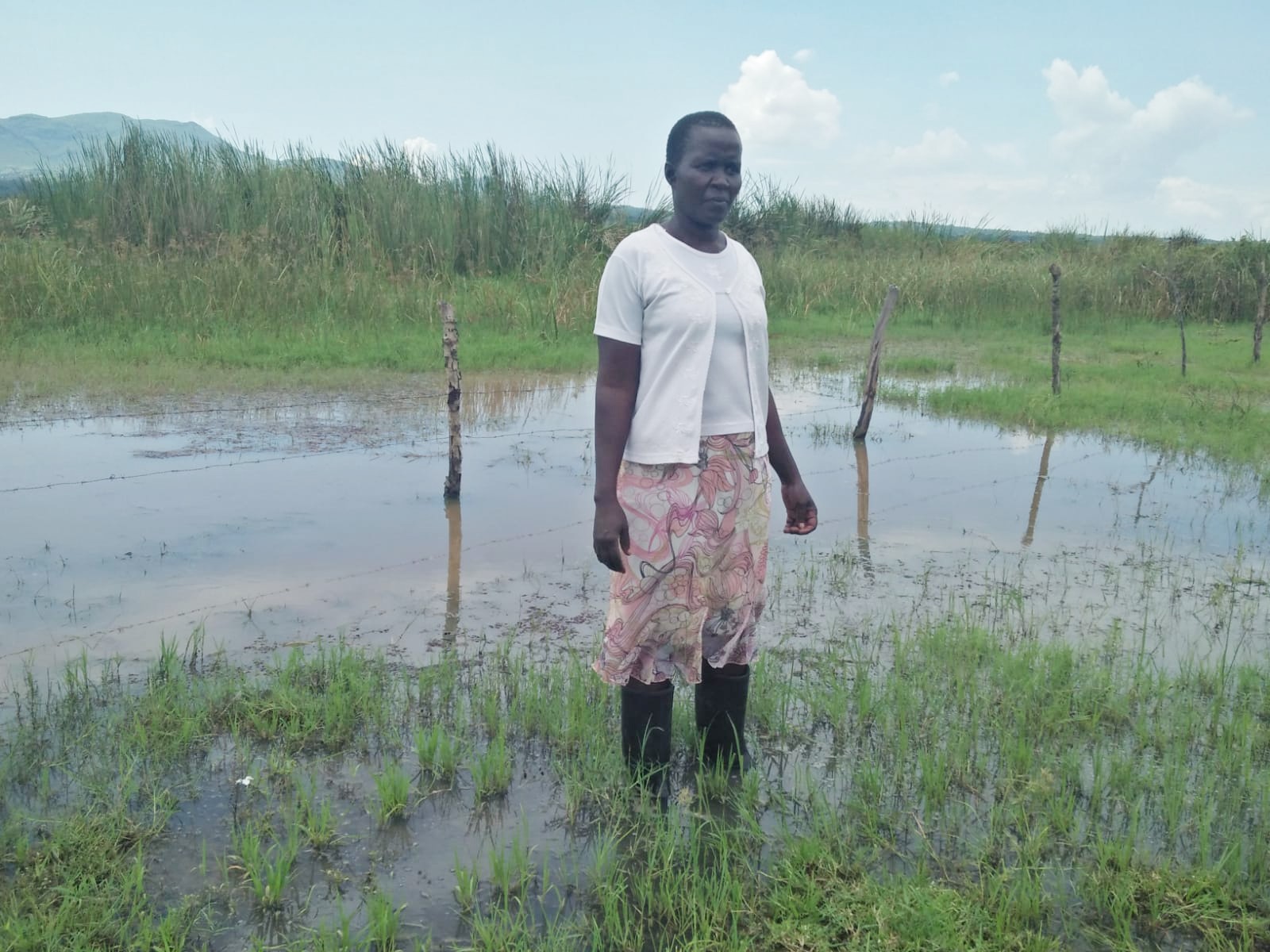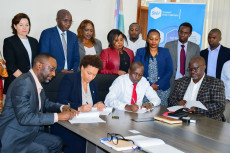- Amani-K Women Group is a group of 14 women who have sensitised the community to better ways of maintaining good health for the donkeys.
Agony and distress have become a part of Kakdhimu village after losing seven donkeys to the perennial floods caused by the burst of River Kapunda.
Donkey keeping has been the backbone of the success of many farmers around the country, and when a farmer loses a donkey, the pain is equal to losing a loyal family member.
Ann Odari Onditi, a resident of Kakdhimu in West Karachuonyo, Homa Bay County, who is a farmer and peer farmer trainer, said that her village and self-help group are still reeling from the loss of their donkeys, which has been a major setback for the local farmers.
"My village has lost 7 donkeys in total and my self-help group lost 4 donkeys. These donkeys were essential to our livelihoods, and their assistance cannot be replaced by any other animal we rear," she said.
In an effort to protect their beasts of burden, the women in Kakdhimu formed a group called Amani-K Women Group, which has 14 members. This group has been working to educate the community on better ways to maintain the health and well-being of their donkeys.
Read More
Ann recalls how in the past, donkeys were often left to roam the lake shores after a hard day's work, with little care for their welfare. "But with the help of Ripple Effect, we learned that donkeys, just like cows, need to be properly cared for - they should be tethered, grazed, watered, and provided with clean sheds," she said.
The Amani-K Women Group has achieved several milestones in this tough economic time, thanks to the help of their donkeys.
With 34 donkeys, the women use them for water transport to homes, earning money per trip, which they save in a Donkey Welfare Account with Equity Bank. This account has also helped them pay for veterinary care for their donkeys when needed.
However, the recent heavy rains and floods have taken a toll on the group's donkeys, with four of them dying. Ann says the cold and stagnant water pose a health threat to the remaining 35 donkeys, forcing her to move some to a neighbor's dry compound to protect them.
The Amani-K Women Group also provides training to other farmers in the village on sustainable farm systems, helping them to increase their productivity. Ann laments that the heavy rains have destroyed her own two-acre farm, leaving her with significant losses in tomatoes, kales, cassava, sorghum, and bananas.
Despite the challenges, the women of Kakdhimu remain resilient, using their donkeys and farming skills to achieve financial independence and economic empowerment.




-1772102940-md.jpg)


-1772090413-1772095461-md.jpg)


-1772102940-sm.jpg)

